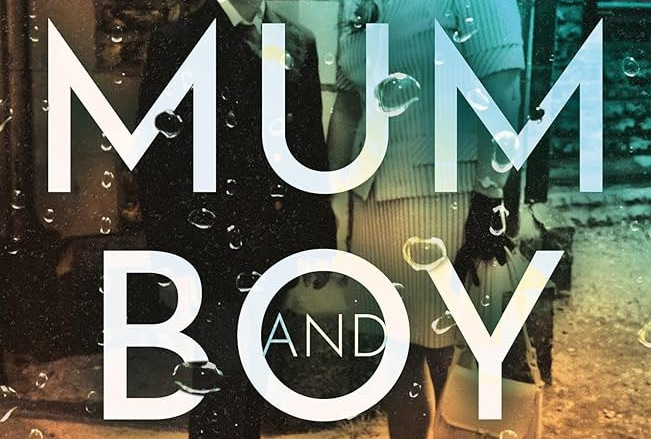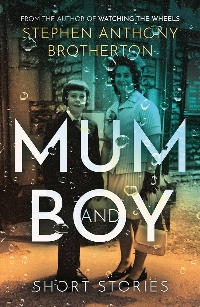Review: Mum and Boy by Stephen Anthony Brotherton

I received a free copy of this book from the author in return for an honest review.
‘Four individual and complex stories about human development and the psychological nature of the mum and boy relationship. They explore the potential complexity of this connection and show how it can go badly wrong.
‘A dead boy remembering tragedy from inside his coffin; a boy dealing with the death of his mum, who died by suicide; a teenager who mistakenly kills his father; a teenager dealing with hallucinations.
‘Each compelling story covers a range of topics from mental health, suicide and psychological trauma. All with one thing in common - vulnerable human beings looking for survival.’

Mum and Boy, by Stephen Anthony Brotherton, is a capsule collection of short stories about relationships between mothers and sons. Each dyad is in a distinct, extreme situation, but every one is emotionally intense and unsettling to some degree.
Usually, with short story collections (such as Brotherton’s previous book, Watching the Wheels), I’ll identify themes and pick out favorite pieces; however, as Mum and Boy comprises just four stories, I have the space to discuss each story individually.
Afterlife
The first story is the longest, and also the saddest and most shocking of the quartet.
We follow Jake, who died at the age of ten, into the afterlife. Along the way, he recalls key incidents from his lifetime of abuse at the hands of his father and sister – but also more tender moments with his similarly mistreated mother.
Brotherton’s descriptions of the horrible things Jake experienced are necessarily unflinching and visceral, yet the story isn’t completely grim: between memories, the mysterious guardian angel figure in red pixie boots from Watching the Wheels takes him on a scenic journey that just might lead to something better.
Oedipus Revisited
While Afterlife sets out its stall early on, Oedipus Revisited has a more insidious feel.
Teenage Charlie and his single mother have always been close. He starts off by recounting events from his younger years that were a bit odd, but ultimately innocent-seeming. Gradually, though, his memories and the way he talks about his mother take a more disturbing turn.
When Charlie’s estranged father makes an unexpected reappearance, we realise just how seriously devoted Charlie is to his mother. You can probably guess how the story ends from the title!
The author did a great job here of making my skin crawl without distracting me from the main action of the story – I was agog as I wanted to see exactly how things played out with Charlie’s father.
Iris May
Like its predecessor, Iris May has a ‘too much, too young’ vibe, except in this case, 14-year-old Archie arrives home from school to find his mother taking her final breaths, having overdosed. So begins an inner dialogue, as he considers whether or not to follow her.
You may think this story sounds bleak, and you would be absolutely correct. Brotherton very effectively creates a mood of gloom and oppressiveness through descriptions of tired 1960s furniture with an implied miasma of cigarette smoke, and restricted, disappointing, enmeshed lives. It’s depressing, but that’s the point.
Talking Heads
Inner conflict is also a feature of the final story in the collection, though rather than arguing with himself, 15-year-old Alfie has to deal with four intrusive incorporeal characters, all saying nasty things about his mum and twisting the actually-quite-sweet story of how she met his dad.
I seem to have developed a particular interest in stories where trauma manifests itself in curious ways (Toni Morrison’s Beloved and Shirley Jackson’s The Bird’s Nest, to name just a couple of examples). As – to my mind, at least – Talking Heads falls into this category, it was naturally my favourite in the book!
As with the previous stories, I found the family lore and memories presented in Talking Heads evocative and absorbing. However, it differs from the other three in that, despite the eponymous hallucinations’ attempts to put a different spin on things, on the whole they’re a lot more positive and wholesome. In accordance with this, the book ends on a hopeful note, which I appreciated.
Mum and Boy is powerful and harrowing.